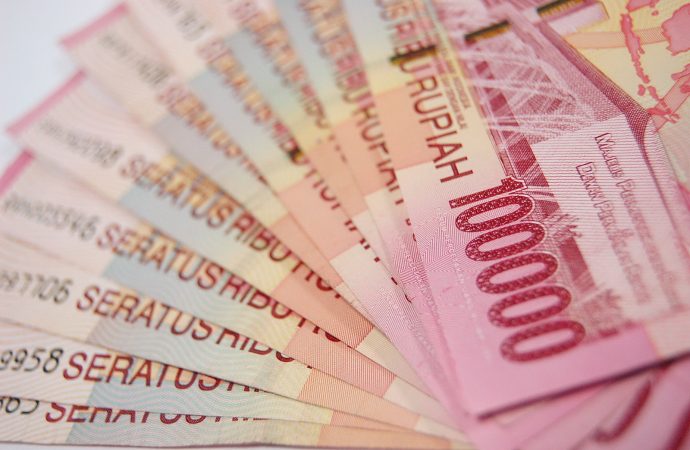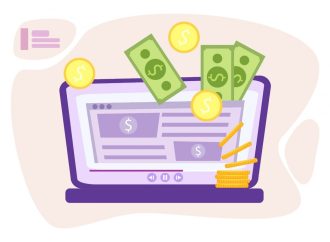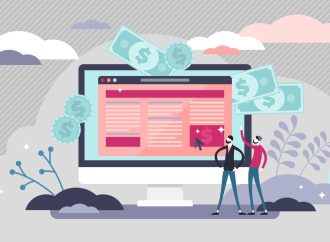As the Federal Reserve considers its next move on interest rates, investors across the globe are placing their bets on whether or not there will be a hike in the near future. The outcome of this decision could have significant implications for the economy as a whole, leaving many wondering what it all means. In
As the Federal Reserve considers its next move on interest rates, investors across the globe are placing their bets on whether or not there will be a hike in the near future. The outcome of this decision could have significant implications for the economy as a whole, leaving many wondering what it all means. In this blog post, we’ll explore why investors are pausing their betting and delve into what potential impacts this could have on businesses, consumers and beyond. So buckle up and join us as we take a closer look at one of the most pressing economic issues of our time!
What is the Federal Reserve?
The Federal Reserve is a federal agency in the United States that was created in 1913. Its primary purpose is to manage the nation’s monetary policy, which includes setting interest rates and providing loans to banks. The Fed also makes decisions about what type of loans to make available to businesses and consumers. The Fed’s authority comes from Congress, and it is governed by a five-member board of governors.
What does the Fed decide to do with interest rates?
On Tuesday, September 26th, the Federal Reserve announced that it would be holding off on raising interest rates until at least December. This came as a shock to many investors and traders who had been expecting the Fed to raise rates this month in order to keep inflation under control. The decision has significant implications for the economy, and here’s what investors are betting on:
One of the main factors driving interest rates is inflation. If the Fed sees signs that inflation is starting to pick up too fast, they may decide to hike rates in order to slow down the rise in prices. Higher interest rates make borrowing more expensive, which can put a dampener on consumer spending and businesses’ growth. If this happens too often, it could lead to recession.
Some analysts believe that the Fed’s decision not to raise interest rates was partly influenced by falling oil prices. Falling energy prices tend to depress economic activity overall because they reduce demand for goods and services. If low inflation becomes a persistent trend, policymakers may feel compelled to increase rates in order to stabilize prices (and prevent further decreases).
What does all of this mean for you and your investments? It’s hard to say for sure exactly how things will play out, but odds are that we’ll see some changes over the next few months as markets adjust to the Fed’s latest move. In general, though, it’s always best practice to stay aware of current market conditions so you can make informed decisions about your investments.
What are the potential consequences of a Fed interest rate hike pause?
The Federal Reserve is scheduled to release its quarterly interest rate report on Wednesday, and some investors are betting that the central bank will delay a planned interest rate hike.
If the Fed does pause its interest rate hikes, it could mean good news for the economy.
In a recent note to clients, Barclays analysts wrote that “if the FOMC pauses in March while looming headwinds keep inflation below 2%…we could see conditions support another [interest] rate increase in June.”
However, if the Fed delays a rate hike, it’s also possible that economic conditions will continue to worsen and the central bank will need to act sooner rather than later.
Either way, investors are keeping their eyes on Wednesday’s report.
What does this mean for the economy?
Investors are betting on a Federal Reserve interest rate hike pause. This news comes after the Fed raised rates for the first time in nearly a decade earlier this month. The market is expecting another hike in September, but there’s been some uncertainty since President Trump said he would like to see rates stay low.
An interest rate hike could lead to higher borrowing costs for consumers and businesses, which could impact both the economy and stock prices. Higher borrowing costs can slow economic growth by making it more expensive to borrow money, and they also tend to make investments less attractive because they increase the risk of losing money.
If stock prices go down because investors think the economy will be weaker after an interest rate hike, then consumers may end up spending less money and companies may not be able to afford to invest as much in new technologies or products. This could have a negative effect on unemployment levels and Gross Domestic Product (GDP).
On the other hand, if stock prices go up because investors believe that the economy will be stronger after an interest rate hike, then consumers may spend more money and companies may be able to afford to invest more in new technologies or products. This could have a positive effect on unemployment levels and Gross Domestic Product (GDP).
What does this mean for individual investors? It’s important to remember that no one knows exactly how things will unfold with regard to the economy and interest rates, so it’s important not to overreact when news
Conclusion
Investors are placing bets on whether the Federal Reserve will raise interest rates this month, and some say the pause in rate hikes could mean a weaker economy. Some economists believe that if the Fed delays raising rates until later in 2016, it would indicate they’re not confident about economic growth. This could lead to diminished buying power for consumers and businesses across the nation. On one hand, higher interest rates would stem inflation by making borrowing more expensive, but on the other hand, if there’s less demand for goods and services because people are afraid of having their income reduced due to inflation, that could impact employment too. In short, this is still very much a mystery as to what all of these potential side effects might be – but one thing is for sure: with stock market values seemingly somewhat insulated from any global macroeconomic shocks at present (at least those we can see), it pays to closely monitor developments within the financial world!





















Leave a Comment
Your email address will not be published. Required fields are marked with *